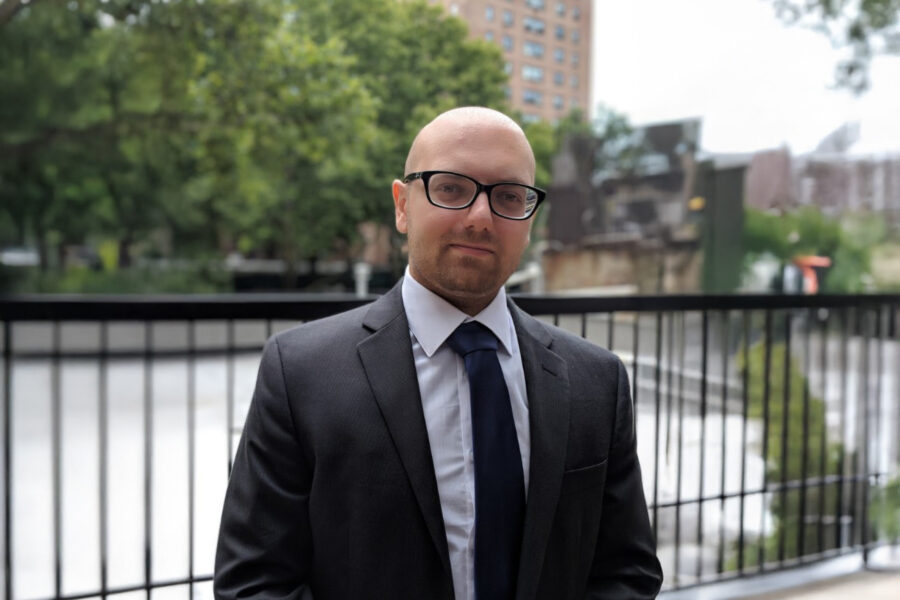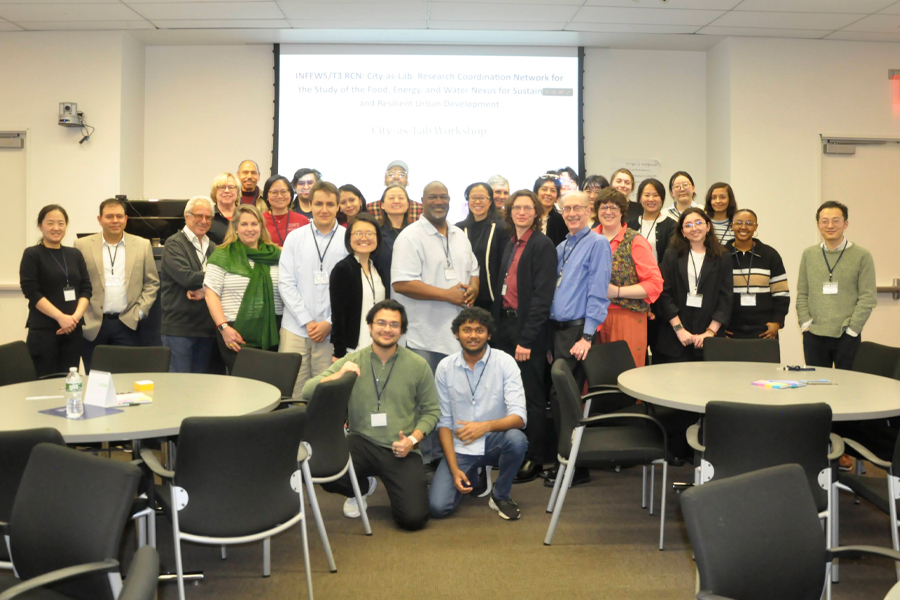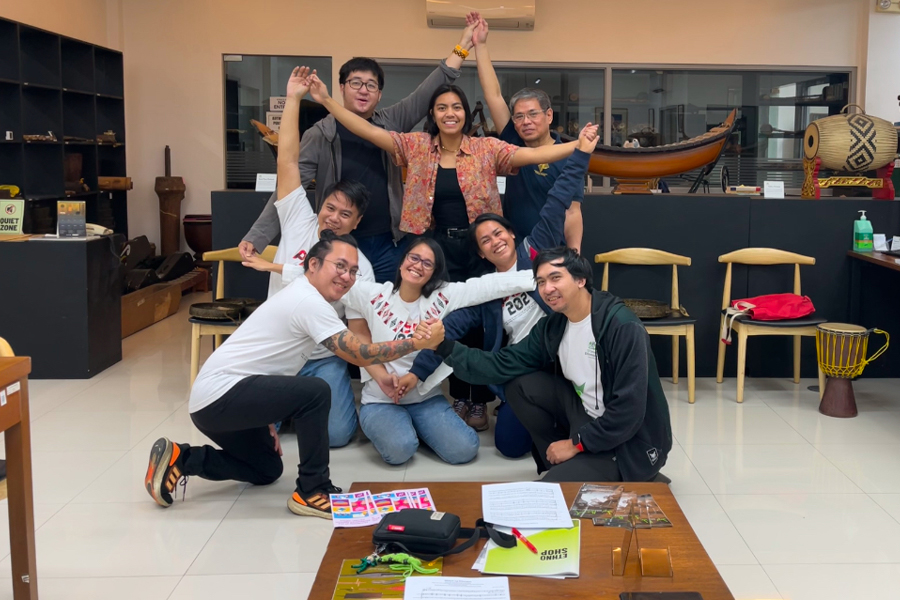Faculty Profile: Robert Alexander
Keeping an Eye on Things
“When I draw, I mostly draw eyes,” says Assistant Professor of Psychology and Counseling Robert Alexander, Ph.D. A visual artist in his spare time, it is not surprising that Alexander thinks of the human eye when approaching his artwork. His professional work has long focused on vision, eye tracking, and the advancements we can make when approaching eyesight from a different perspective.
“Many people don’t realize this, but eye movements are critical for vision,” Alexander says. If you never moved your eyes, everything would quickly fade from sight. Understanding precisely why we make those movements and how the neural circuits involved in eye movements, perception, and cognition are linked to each other might give us a better grasp of human psychology in general.”
This simple idea has led to an entire world of research and discovery with Alexander at the forefront. Much of his research is centered on increasing safety and reducing deaths resulting from “attentional or perceptual failures.” “I track the eye movements of working professionals such as radiologists or computer programmers to determine how their attentional targeting choices are made and how these choices change with perceptual learning and expertise,” he says. The resulting data can be used to improve training for these positions and to identify signs of fatigue, which can result in expensive and dangerous mistakes.
“When teaching, I sometimes mention recent news stories about human error and the problems it can cause, such as plane or automobile crashes, medical errors, and mistakes with infrastructure,” he explains. “Human error is a big problem, and if we can improve training and reduce those errors, we can save a lot of lives.”
Alexander also uses these tools and analyses to improve the diagnosis of visual impairments and clinical conditions to reduce disparities in healthcare access. “Racial and ethnic minorities are at high risk for many kinds of different ocular diseases that can lead to blindness and vision impairment. Vision loss is more common in women, people with lower incomes, and people with less education. In fact, disparities in visual impairments exist along nearly every dimension of diversity,” he says. “In many cases, even just reducing the costs of assessments could help reduce the disparities by lowering the barriers preventing access to vision care. By considering these issues while designing my studies, I take concrete steps toward improving health equity.”
Alexander serves as vice president for the Americas chapter of The International Society for Clinical Eye Tracking (ISCET), an organization created to provide a voice for existing clinicians working with eye trackers, as well as guidance for new clinicians seeking to enter the field. “Outside of teaching and research, I have been involved in promoting the use of eye tracking in education and in clinical settings,” he says. “My role as vice president for ISCET is part of that effort and is aligned with New York Tech’s status as a leader in the applications of technology that benefit the larger world.”

Faculty Profile: Robert Alexander
Title: Assistant Professor
Department: Psychology & Counseling
Joined New York Tech: 2023
Campus: New York City
More Profiles

Entrepreneur, Treasurer, and Robotics Designer
When computer science student Gunn Aggarwal devised a business idea for a class, she didn’t envision the level of success that it would soon reach.

Change Agent
As a senior consultant at EY, Michael Alsharaiha (B.S. ’13, M.B.A. ’18) helps companies navigate change in a fast-paced and ever-evolving economy.

New York Tech Launches Innovation and Entrepreneurship Academy With $5 Million Venture Fund
In a bold step to strengthen its leadership in entrepreneurship education, New York Tech has launched its Innovation and Entrepreneurship Academy, along with the creation of a $5 million venture fund to invest in startups.

City-as-Lab Workshop Plants the Seed for the Future of Urban Sustainability
Sixty-three sustainability professionals gathered on New York Tech’s New York City campus for the City-as-Lab Research Coordination Network (RCN) workshop, funded by the National Science Foundation.

Center for Offsite Construction Helps to Establish Modular Interface Standards
The Center for Offsite Construction in the School of Architecture and Design is collaborating with the International Code Council to develop critical standards for modular construction.

Guiliano Global Fellows: Spreading Care Around the World
Under the Edward Guiliano Global Fellowship program, seven students traveled the globe, broadening their perspectives and working on transformational research projects.